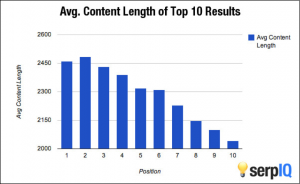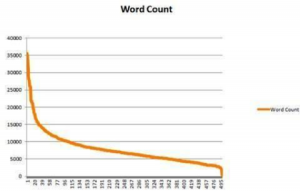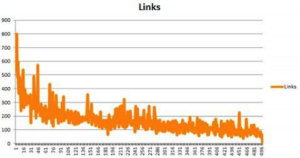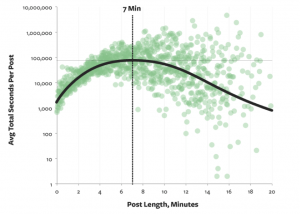Back to SEO Basics: Ideal Content Length for SEO?
SEO Basics
If you’ve spent any time on marketing websites, you’ve probably seen heated debates on the ideal content length for SEO. This is one of the SEO basics few experts can agree on. Some argue that shorter, more frequent content does great, while others say that the longer the page, the better the results.
The truth is that there is no “perfect” content length for every website. How long your page should be depends heavily on your industry, target audience, traffic source and the SEO tips we’ll share with you now.
In this post, we’ll examine this question in more detail and tell you what length your content should be for maximum SEO impact.
There is No “One Size Fits All” Content Length
Before we look at the answers, let’s get one myth out of the way: there is no such thing as ‘one size fits all’ when it comes to content length. Some websites do phenomenally well with posts that run into just a few hundred words. Others create pages with 5,000+ words to rank in search engines.
How long your content should be depends on four things:
- Traffic source: If your traffic comes largely from social media, shorter content can perform as well, if not better than longer content.
- Industry: Certain hypercompetitive industries require longer content than others to rank well.
- Target audience: If your target audience is 16 year old teens, you’ll likely need shorter content than if your audience is 40+ year olds looking for medical advice.
- Existing authority: If you have existing authority and audience, you can get a lot of mileage from shorter content. For example, Seth Godin rarely writes blog posts longer than a few hundred words.
Of course, there are other factors as well – how much time/budget you can set aside for creating content, how many writers there are on your team, and whether you have enough topics to create content on.
The important thing to know here is that rather than blindly going for longer or shorter content, it makes more sense to analyze your traffic, industry and target audience before choosing a content length.
With that out of the way, let’s take a look at how content length correlates with SEO.
How Content Length Impacts SEO
In 2012, SERPIQ did an analysis of the top ten results for a number of keywords in Google. From the data, it concluded that the average content length for these results was at least 2,000+ words.
Moz did a similar analysis of the top content on its own site. After studying over 3,800 blog posts, it concluded that the best performing posts had a length of over 1,500 words.
Another study by Moz concluded that there is a strong correlation between the length of the content and the number of backlinks it gets.
Analysis like this is the reason why most marketing experts consider content length to be a ranking factor. There is a positive correlation between content length and search engine rankings – longer content will push you higher up in the SERPs.
What is the Ideal Content Length for SEO?
Based on the above, we can say that content that is longer than 1,500 words. Medium.com agrees – digging through its own data, it found that content that takes around 7 minutes to read gets the most attention.
At an average reading speed of 200-300 words/minute, this works out to a length between 1400-2100 words. With this length, you’ll not only get SEO benefits, but will also be reader friendly.
So to answer the original question, 1,500-2,500 words is the ideal length for SEO. Shorter than this and you’ll likely not get a lot of search traffic (though it depends on your niche). Longer than 2,500 words and you’ll lose your audience.
Other Content Factors to Remember Before Publishing
You’re probably ready to start pumping out 2,000 word blog posts and reap maximum SEO benefits. But before you can do that, there are a few important things you should know:
- Depth is more important than length
Content that is long for the sake of being long won’t help you with SEO or your audience. Google wants to rank the best content for each keyword, not just the longest. It is entirely possible to write a 3,000 word blog post that doesn’t really offer any depth or insight.
So before you hit publish, make sure that your content actually has the depth to support the length. Don’t just pad out the page with fluff. Instead, answer real questions and offer value to readers.
- Presentation and formatting matter
A 2,000 word wall of text will intimidate even the most serious of readers. This is why you need to make sure that the content is properly formatted and presented.
Some ways to improve presentation are:
- Use bullet points and numbered lists.
- Use short paragraphs no longer than 2-3 sentences.
- Use images and videos to break down content into sections.
- Use headings and sub-headings to organize content.
Do this and you’ll make your content substantially easier to consume, and thus, easier to rank.
- Delivering value is essential
Every piece of content on your site must have a purpose. It must either answer a question, offer an opinion, or help the reader understand something better. In short, it must deliver value if it is to be effective.
This means that instead of focusing on content length, you should focus on whether the content offers enough value to readers or not. If a 300 word post can answer the readers’ query, don’t stretch the content out to 2,000 words just for the sake of it. Similarly, if the question is so big that it requires 5,000 words of content, don’t try to compress it to 1,000 words.
Which is to say, pick the content length that fits the topic.
Conclusion
Content length is one of the most important SEO basics that has a direct impact on search engine rankings. In most cases, longer content leads to better SEO results. However, you also have to take into account your traffic source, authority, and target audience. Additionally, your content needs to have strong presentation, depth and must deliver value to readers to get SEO benefits.







